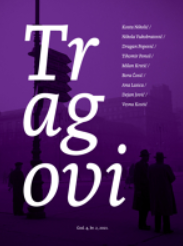Od “Ljeta” do “Oluje”. Uvod u pad Republike Srpske Krajine 1995. godine
From operation “Summer” to operation “Storm” 1995. Background to the Fall of the Republic of Srpska Krajina
Author(s): Kosta NikolićSubject(s): Military history, Political history, Military policy, Studies in violence and power, Transformation Period (1990 - 2010), Inter-Ethnic Relations, Peace and Conflict Studies
Published by: Srpsko narodno vijeće, Arhiv Srba u Hrvatskoj
Keywords: Republic of Croatia; Republic of Serb Krajina; Operation “Summer 95”; Operation “Storm”; Franjo Tuđman; Slobodan Milošević; Milan Babić; Peter Galbraith;
Summary/Abstract: This article examines the background to the operation Storm in 1995, a decisive Croatian attack on Republic of Srpska Krajina. This action was based on the estimate that after the fall of the enclaves of Srebrenica and Žepa in eastern Bosnia, forces of Bosnian and Croatian Serbs were planning an attack on the Bihać region in northwest Bosnia. Croatian leadership projected that the fall of Bihać would further complicate its war plans, as it would solidify Serbian control over compact territory. American military and intelligence apparatus was also estimating that such move would pave the way to Serbian victory in war. The priority was therefore to enable Croatian military engagement in that sector through a complex diplomatic action which preceded its realization. This operation was executed under the codename “Summer 95”, leading to the Croatian overtake of the cities of Bosansko Grahovo and Glamoč, which exposed Knin, the stronghold of Republic of Srpska Krajina. What followed was a Croatian attempt to secure support from the West (primarily the United States) for a decisive military action. Its scope was finalized at President Tuđman's meeting with the military leadership on July 31 and at the session of Croatian Defence and National Security Council on August 3. Aside of the international context, two important components to the background of the downfall of Republic of Srpska Krajina were relations between Serbia and Croatia in their attempt to secure their war aims, as well as the power struggles between Slobodan Milošević and the leaderships of Croatian and Bosnian Serbs. These complex relations are well reflected in the archival material exhibited in the International Criminal Tribunal for the former Yugoslavia, as well as in the recollections of the protagonists.
Journal: Tragovi: časopis za srpske i hrvatske teme
- Issue Year: 4/2021
- Issue No: 2
- Page Range: 7-66
- Page Count: 60
- Language: Serbian

